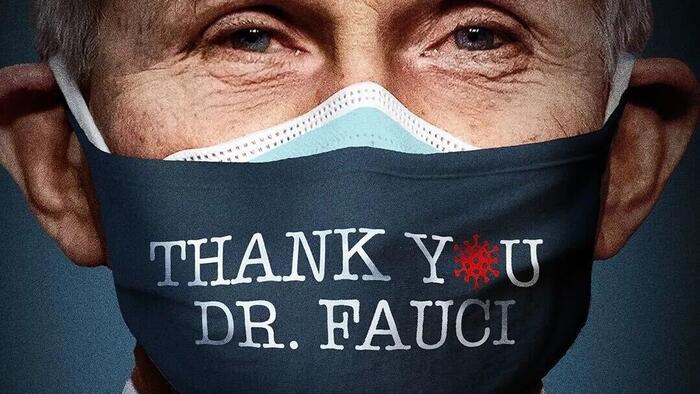The documentary “Thank You Dr. Fauci” sheds light on the multifaceted nature of the COVID-19 pandemic, its origins, and the significant political and scientific choices that influenced the global response. Directed by Jenner Furst, the film features an array of whistleblowers, researchers, and activists who critically examine mainstream narratives surrounding the pandemic. As discussions surrounding a potential preemptive pardon for Dr. Anthony Fauci arise, the documentary takes on increased relevance. It serves as a catalyst for a movement striving for accountability, particularly as the new Trump administration positions itself to scrutinize the actions of public health officials. As the narrative unfolds, “Thank You Dr. Fauci” not only seeks to depict the pandemic’s origins but also to highlight systemic failures and push for reform in public health strategies.
Central to the film’s narrative is Dr. Richard Ebright, a molecular biologist from Rutgers University. Ebright’s critical stance on gain-of-function research underscores the potential hazards posed by scientific experimentation that enhances the transmissibility or pathogenicity of viruses. For years, he has served as a cautionary voice against the lethargy and opacity surrounding virus research. His expert commentary positions him as a central figure not only in the documentary but also in the ongoing discussions about pandemic preparedness and accountability. The film encapsulates his warnings and calls for greater transparency in scientific research, particularly related to the methods that may have contributed to the COVID-19 outbreak.
Dr. Jay Bhattacharya, a Stanford University professor of medicine, also plays an important role in the documentary as a critic of extreme lockdown measures introduced to combat the virus. Advocating for “focused protection” over blanket lockdowns, Bhattacharya stresses the detrimental effects of such policies on society’s most vulnerable groups, including children and the economically disadvantaged. His credentials and perspective provide a grounding for the ongoing debate about the efficacy and repercussions of public health strategies implemented during the pandemic. Furthermore, Bhattacharya’s anticipated appointment to the Director of the National Institutes of Health (NIH) marks a pivotal moment that could reshape future health policies, advocating for a more balanced approach to public health.
The documentary doesn’t stop at individual voices of dissent; it includes scientists like Dr. Bryce Nickels and Dr. Justin Kinney, who call for reform regarding biosafety research standards. Both have raised alarms about the lack of oversight in gain-of-function research, aligning their concerns with those of Ebright and Bhattacharya. Their inclusion reinforces the narrative that the conditions leading to the pandemic were exacerbated by inadequate regulatory frameworks surrounding high-risk scientific research. The film advocates for a complete re-examination of policies regulating such experiments as a means to prevent future pandemics and to hold accountable those who may have failed in ensuring proper oversight.
Additional perspectives come from prominent figures like Dr. Marty Makary and David Asher, who have been critical of the prevailing COVID narratives. Makary gained recognition for his outspoken skepticism during the pandemic, particularly concerning the perceived mishandling of information regarding herd immunity and public health messaging. His critiques provide an essential counter-narrative and deepen the inquiry into the actual consequences of imposed health measures. Asher’s investigations into the origins of COVID-19 lend credence to the lab-leak theory and draw attention to the need for greater transparency about the interplay between scientific research and public health policy. Their contributions highlight a collective effort among various experts to reconstruct the events that transpired leading to the pandemic.
“Thank You Dr. Fauci” also addresses the moral imperative of transparency in government actions. Figures like Adam Andrzejewski are spotlighted for their dedication to revealing the financial intricacies and decisions that may have influenced pandemic responses. His research unveiled alarming statistics about Fauci’s salary and connections within pharmaceutical circles, contributing to discussions about potential conflicts of interest during the pandemic. The film posits that such revelations are critical for fostering trust in public health institutions, echoing a collective call for increased scrutiny of bureaucratic accountability.
As the Trump administration assumes power once more, the narratives established in “Thank You Dr. Fauci” are poised to influence discussions on accountability and reform. The documentary emerges as a vital reference point for upcoming congressional investigations into the origins of COVID-19 and the actions taken by public health officials. The various experts and whistleblowers featured not only provide a rich tapestry of perspectives but are also aligned with potential roles in shaping future policies and investigations. Ultimately, the film stands as an urgent reminder of the need for vigilance, transparency, and reform in the face of public health crises, advocating for a more reflective and accountable approach to scientific research and governance in the years to come.

